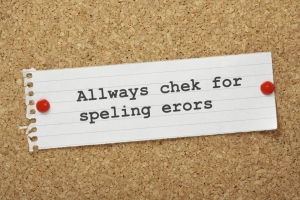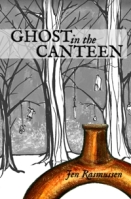 When Kindle Unlimited was rolled out, I read the fine print and realized that subscribers can download audiobooks as well as ebooks for free (with the author receiving about $1.50 per borrow and possibly gaining new fans). Since there are about 700,000 ebooks enrolled in Amazon’s lending library but only about 2,300 audiobooks, I decided I wanted to swim in that much smaller pool. Was it possible for an unknown indie?
When Kindle Unlimited was rolled out, I read the fine print and realized that subscribers can download audiobooks as well as ebooks for free (with the author receiving about $1.50 per borrow and possibly gaining new fans). Since there are about 700,000 ebooks enrolled in Amazon’s lending library but only about 2,300 audiobooks, I decided I wanted to swim in that much smaller pool. Was it possible for an unknown indie?
The answer is a resounding yes, but like most aspects of self-publishing you’ll need to spend some time and possibly money on the endeavor. ACX is Amazon’s audio wing, where authors hook up with narrators to make independent audiobooks happen. You can choose to pay up front for your narration (a process that will likely cost $1,000 to $5,000), or you can opt for the revenue-sharing possibility as I did. Revenue-sharing costs the author nothing up front, but you split all future audio royalties fifty/fifty with the narrator after the audiobook is produced. Although that sounds like a lot of money to give up, your revenue-sharing narrator does have a vested interest in making your audiobook soar and might help you sell more. On the downside, though, you will have to make your project look very enticing to potential narrators if you want to find a really top-notch voice actor in this scenario.
As you might guess, I used the royalty-share option to produce my first audiobook (which is now available on Amazon, Audible, and (soon) iTunes). I learned a huge amount on the process, too, namely:
Be patient while you wait for auditions. At first, narrator auditions trickled in, but after a week, Amazon chose my project to be eligible for an ACX stipend and they featured the book in their newsletter to producers. That meant that even though I chose the revenue-sharing feature, the narrator would also be paid $100 per audio hour up front. In other words, the stipend made my project look very enticing and attracted some higher-end narrators. (You are most likely to get the stipend if your ebook is already selling very well.)
Stay in touch with your narrator as they work. My narrator and I got our wires crossed and she thought the audiobook was due three weeks later than the date I’d set in the dashboard. Don’t assume your narrator read all the fine print! Send them a message every week or so and make sure you’re both on the same page. And, before you start, make a list of any strangely pronounced names or words in your story as a sort of cheat-sheet for the narrator. (I didn’t know to do this either….) Help make their job as easy as possible!
Consider the pay-up-front option. One of my recent time-sinks has been lurking on kboards, where indie authors share what has and hasn’t worked for them. A few authors there note that they’ve been making as much per title with audiobooks as with ebooks lately, but their method of success involves paying up front for top-notch narration. I’m still not sure whether I’m willing to sink such a huge sum of money into my next audiobook, but if Shiftless does well, I might go that route with book two.
Tell your fans about Audible’s free trial. Audible gives revenue-sharing authors $25 each time someone signs up for a new membership and downloads your book as their first audio adventure. This is a relatively easy sell since your fans probably want to listen to your story and will love the idea of getting a copy for free. So push those free trials!
If you’ve got any questions about audiobooks, feel free to leave them in the comments below. Although it’s taken a bit of time, I’ve vastly enjoyed the experience of turning Shiftless into an audiobook, in large part because hearing my words narrated has made them feel more real. Go listen to the free sample and see what you think! (And, while I’m mentioning free things, I’ve set the ebook version of the prequel short story free at the moment as well, so be sure to snag your copy!)









